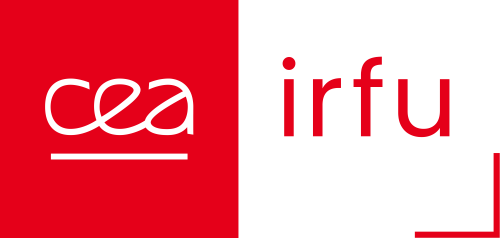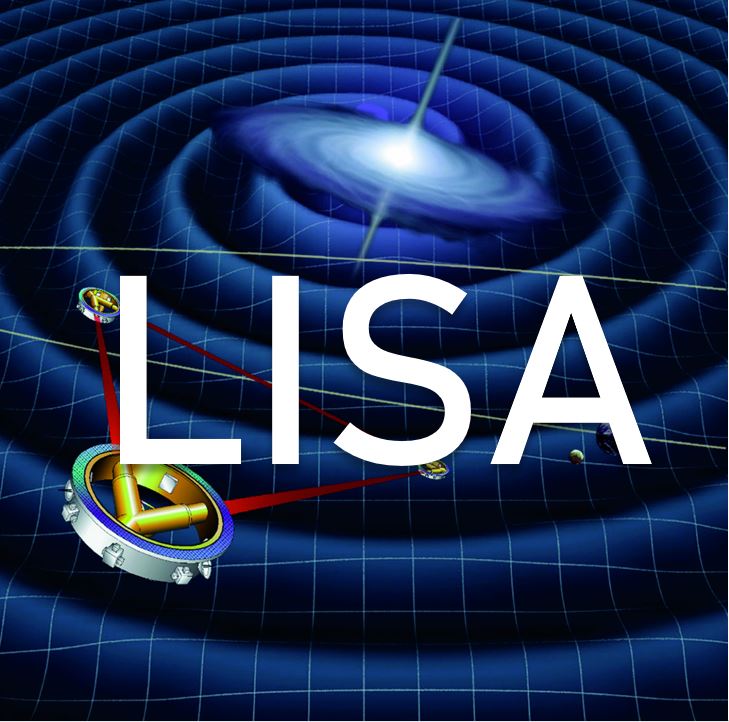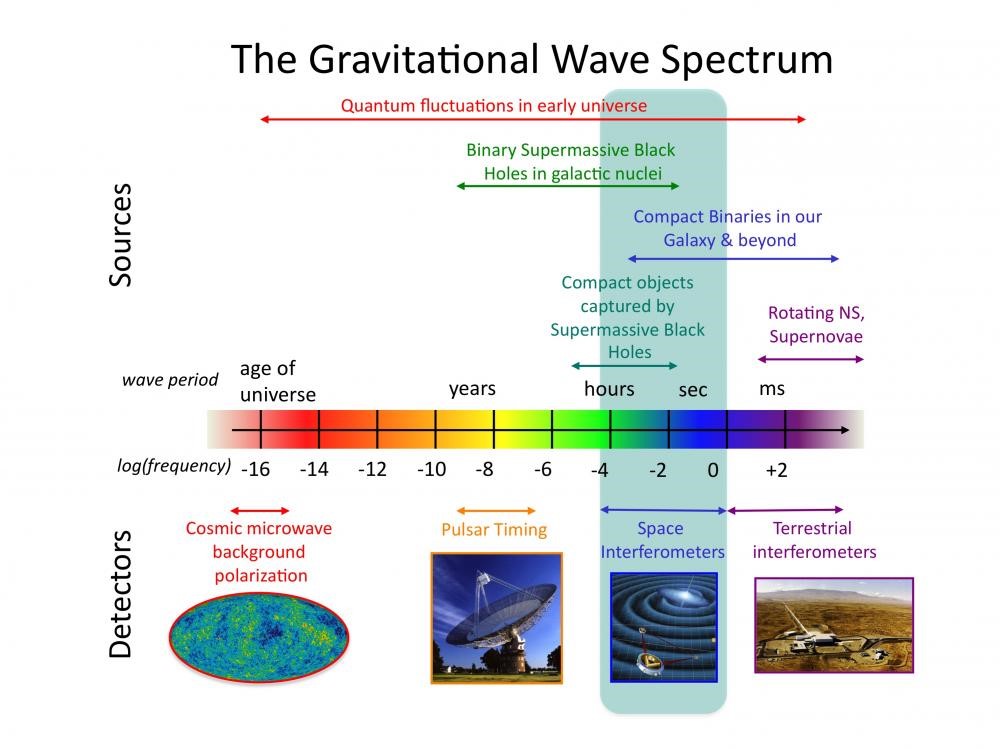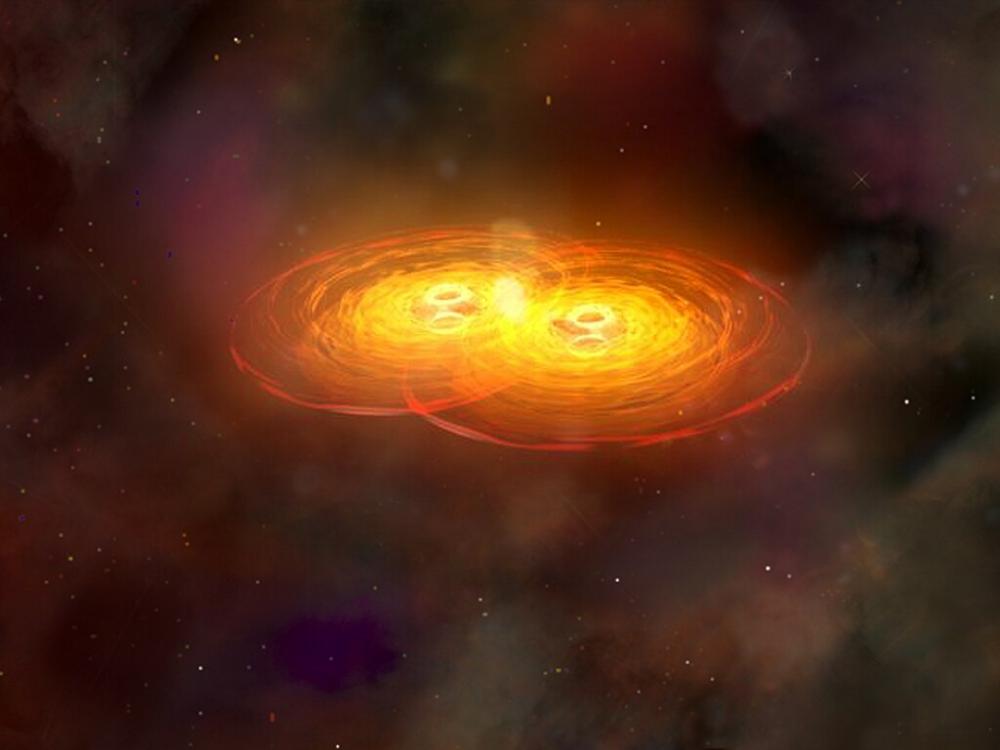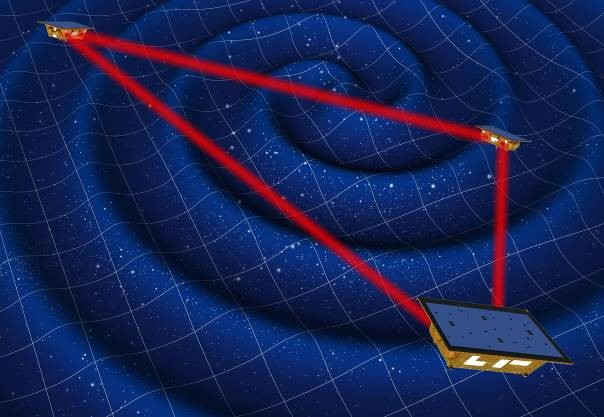ISA (Laser Interferometer Space Antenna), the European Space Agency's large-scale mission to explore the Universe by observing the many sources of gravitational waves, was adopted on Thursday January 25 by ESA's Scientific Programs Committee, meaning that the concept and technology are recognized as sufficiently advanced for construction of the instrument and satellites to begin. Launch is scheduled for 2035.
This mission will revolutionize astrophysics, cosmology and fundamental physics, with 3 satellites orbiting the Sun in a 2.5 million km triangle to detect gravitational waves emitting in the millihertz band, such as supermassive black hole binaries. These 3 satellites exchange laser beams to interferometrically detect distance variations of the order of ten picometers induced by gravitational waves. Irfu is heavily involved in the LISA project, contributing to the instrument, data analysis and source science. It is in charge of the reference mass simulator and the stable structure for testing the interferometric core, the analysis of alerts, a contribution to the global analysis and co-leading of the project for France. It is also preparing the scientific exploitation and in particular the tests associated with fundamental physics, the study of the primordial Universe and the study of magnetic fields in white dwarf binary systems.
Gravitational waves are a new way of observing the Universe that complements methods using light and other messengers. They are deformations of space-time created when large masses are in motion. They were first observed in 2015 with the detection of a binary system of black holes by LIGO and Virgo. Since then, more than 170 sources have been observed by these sensitive ground-based instruments in the 10Hz - kHz band. In parallel, at very low frequencies, there is strong evidence for the detection of a gravitational wave background at nanohertz with the timing of millisecond pulsars. To access the source-rich millihertz band, we need to go into space. This is the objective of the LISA (Laser Interferometer Space Antenna) space interferometer.
LISA will observe gravitational wave sources emitting between 0.1 mHz and 1 Hz, including numerous binary sources formed by two compact objects, in particular the merger of super-massive black holes (millions of times the mass of the Sun), the fall of a small black hole into a black hole of several million solar masses, binary systems of stellar-mass black holes and binary systems of white dwarfs. The background noise of gravitational waves emitted just after the Big Bang would also be detectable by LISA.
ecause of this diversity and wealth of gravitational wave sources, LISA has a number of scientific objectives:
- Study the formation and evolution of compact binary stars and the structure of the Milky Way Galaxy
- Trace the origins, growth and merger histories of massive Black Holes across cosmic epochs
- Probe the properties and immediate environments of Black Holes in the local Universe using extreme mass-ratio inspirals and intermediate mass-ratio inspirals
- Understand the astrophysics of stellar-mass Black Holes
- Explore the fundamental nature of gravity and Black Holes
- Probe the rate of expansion of the Universe with standard sirens
- Understandstochasticgravitationalwavebackgroundsandtheirimplications for the early Universe and TeV-scale particle physics
- Search for gravitational wave bursts and unforeseen sources
LISA comprises three satellites forming an equilateral triangle that follows the Earth in its orbit. Each satellite orbits the Sun. The satellites exchange infrared laser beams to interferometrically measure distance fluctuations in the picometer range. In order to eliminate most disturbances (micro-meteorites, solar particles, etc.), the satellites protect free-falling reference masses, on which they are servo-controlled by a system of capacitive and optical sensors and micro-thrusters. Numerous interferometric measurements are performed on each satellite. They are transferred to the ground and then combined to suppress dominant noises. The data is then analyzed using complex algorithms running on a several computing centers to extract the gravitational wave sources and their parameters (position, orientation, mass, etc.).
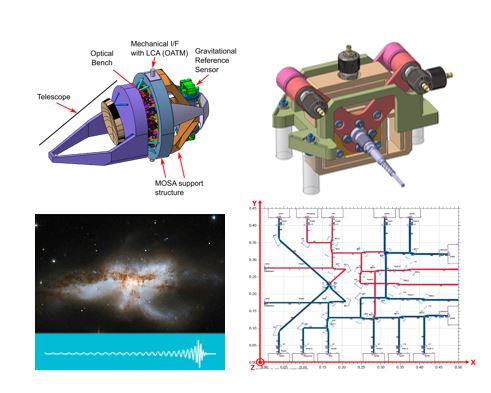
Satellite optical sub-assembly (credit: ESA); injector (credit: CEA/Irfu); illustration of the fusion of two black holes, optical design diagram (credits: NASA, ESA, the Hubble Heritage (STScI/AURA)-ESA/Hubble Collaboration, and A. Evans (University of Virginia, Charlottesville/NRAO/Stony Brook University); ZIFO diagram (credit: APC/CEA-IRFU/LISA-France)
Irfu is heavily involved in the mission, contributing to many aspects: science, data analysis and instrumentation. 5 of the 7 departments (DPhP, DPhN, DAp, DEDIP and DIS) are involved, with around 30 people including the LISA mission scientific co-leader for France.
Regarding the instrument, France is in charge of testing and measuring the performance of LISA's interferometric core. Irfu is making a major contribution to this activity, in collaboration with other French laboratories and under CNES supervision. Irfu designed the MIFO and ZIFO laser injectors, which are demonstrators for assessing the stability and measurement accuracy of the interferometric system. Irfu is also playing an important role in the development of the instrument's performance measurement system. This is a complex system which will have to perform movements with nanometer precision and measurements with picometer precision. In this system, Irfu is responsible for the test mass simulator (TMSim), which must perform extremely fine and precise movements to simulate the motion of LISA's reference masses, and for the stable structure that holds together with great stability the optical bench to be tested, the simulators of the distant beam and the reference mass, and the measurement instruments. The institute is also contributing to the phasemeter.
As far as data processing is concerned, Irfu is currently co-responsible for the European Distributed Data Processing Center. It is responsible for implementing the fast analysis chain to detect gravitational wave signals in the data being received and issue alerts. The IRFU also contributes to the global analysis, which must extract all gravitational wave sources from the data.
Finally, Irfu prepares the scientific exploitation of LISA for astrophysics, fundamental physics and cosmology. Current activities include linking realistic data analysis and fundamental physics theories, studying the detectability and characterization of stochastic background potentials emitted by the primordial Universe (cosmology), and studying the measurement of magnetic fields and tidal effects in white dwarf binary systems (astrophysics).
Contact : Antoine Petiteau
The laboratories participating in the French contribution to the LISA mission are as follows:
- APC (CNRS/IN2P3)
- ARTEMIS (OCA, CNRS/INSIS)
- IRFU (CEA)
- SYRTE (Obs. Paris, CNRS/INSU)
- L2IT (CNRS/IN2P3)
- CPPM (CNRS/IN2P3)
- LAM (CNRS/INSU)
- Institut FRESNEL (CNRS/INSIS)
- LAGRANGE (OCA, CNRS/INSIS)
- LPC Caen (CNRS/IN2P3)
- IRAP (CNRS/INSU)
- IAP (CNRS/INSU)
- LPC2E (CNRS/INSU)
- LUTH (Obs. Paris, CNRS)
- IPhT (CEA, CNRS)
• Structure and evolution of the Universe
• Department of Astrophysics (DAp) // UMR AIM • The Electronics, Detectors and Computing Division • The Nuclear Physics Division • The Particle Physics Division • The Systems Engineering Division
• LISA
